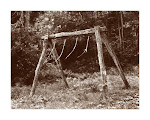Speaking the Truth in Love
Most conversations are simply monologues delivered in the presence of a witness.
Margaret Millar
Here we are at the final debate between presidential hopefuls. Both parties have ignored some of their earlier promises regarding the potential tenor and tone of the campaign and have resorted to unfair, untrue, and unwise discourse. What is the price a society pays when rancor and discord become common place? Why is our speech so important?
Speech is a vital part of our day to day lives. One cannot divorce speech from communication. Communication is in part words. We all know words can cause immense harm as well as great good. Skillful speech can open hearts and lead to profound insights as well as promote healing and transformation. Scripture tells us that a soft answer turns away wrath. James 1:19 says, Let every man be swift to hear, slow to speak and slow to wrath. Therefore the practice of “wise speech” is crucial for any person, company, church or community to truly communicate. In community speech is spiritually alive and therefore is in need of great mindfulness.
There are four qualities of wise speech
1) Truthfulness
2) Helpfulness
3) Kindness and Goodwill, and
4) Appropriateness (including timeliness, non distractedness and clear intention)
1) Truthfulness is clear seeing. It simply means not lying. This would include exaggerations, half truths, omissions, and denials.
2) Helpfulness deals more with the motivations of speech as to whether our speech is to create harm or enmity. This means looking deeply at the roots of non helpful speech discerning moments of ill will, self centeredness, and subtle disparagement.
3) Kindness and goodwill has to do with what might be called harsh speech. For it is possible to to be helpful in some ways while still remaining somewhat cold, seeing ourselves as superior, or lacking empathetic connection. Communication is not merely static information. Communication is carried and received through the conduits of our souls. Therefore harsh judgments and nagging comments will often reveal our cynicism and negativity. When we develop speech that is purposely kind we begin to see the power of words and communication differently. One can be truthful and still speak from the heart. These postures do not preclude being confrontational nor direct. It merely asks what the spirit behind the words. How does it feel in my body when I am saying the words? Why do I talk the way I do? Would I want these same words spoken to me in such a posture and tone? The biblical mandate to do unto others is salient here.
4) It is important to note that committing oneself to truthful, helpful, kind and appropriate speech does not mean being overly nice. There is an important place for speech that is direct, firm, and critical, (without being judgmental & personal). When one is being helpful or kind, it will impact the intentionality of the speech and therefore its delivery and spirit.
So how does one practice these guidelines of speech in the relationships, the public domain and business sector as well as the Church? Wise speech establishes safety. For true honest communication to go down safety is key. We need and want others to be truthful with us and thus we are safe as we know that what is being said to others is also being said to us and said in the same manner of disclosure. Many "concerned conversaitons" are indeed gossip and taint the spiritual water from which the community drinks. All discussions are indeed heard by the heart of the community. That is why the tongue has so much power over life. If we an control what we say, we are now in a positon to begin to get our bodies to do other things that look like servants of Jesus Christ. But without this kind of foundational safety, relationships in the business world and other arenas become strategic rather than cooperative and increasingly are filled with cynicism, skepticism, and even anxiety and fear about other’s intentions and perceptions.
In settings where community is not being experienced, I tend to look out for #1. Are there some , attitudes, postures,norms, guidelines, or policies individuals and communities can adopt to make wise speech more readily present? We currently live in a culture via websites and media where a growing lack of civility has impacted all public discourse. Spiritually grounded communities will make communication safe and encourage speech that is truthful, direct but also helpful, kind, and appropriate and timely. Can we practice safe and wise speech as we engage the political decisions that are about to take place? Without this intention, no policy or law will bring us together as a people. Let us strive to make all areas of our lives safe for the truth to be made manifest. Let us be mindful of the power of our tongue.
Wednesday, October 15, 2008
Subscribe to:
Post Comments (Atom)




1 comment:
You should read the book by Frank Luntz, "Words that Work." You would love it.
Post a Comment